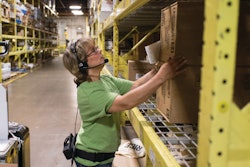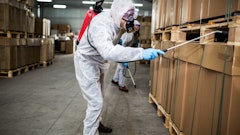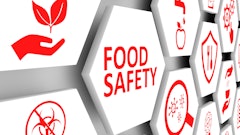
This month’s editorial coverage hits on some familiar themes in our industry—food safety, cargo theft, warehouse efficiency, energy and fuel costs, cloud computing, and sustainability—to name a few. What’s encouraging is new solutions and technologies are available to contend with these shared challenges. What’s even more reassuring is the underlying acceptance among solution providers and customers that for better or worse ‘what affects you, affects me.’
This way of viewing supply chain management as one dependent on collaboration and relationships to attain success—whether it’s about product development or process engineering—was also the topic of Food Logistics’ first educational Webinar on September 5, which focused on the 21st Century 3PL.
My panelists, Matt Kramer from Vocollect and Ray Smith from Trinity Logistics, gave their perspective on the collaborative relationships that have evolved between 3PLs and their clients. To sum it up, it’s no longer transactional and driven purely by price; today’s relationships are more integrated and place just as much emphasis on value as price.
And when we’re talking about food supply chains, the stakes are high given the potential health impact on consumers, making the need to work together all the more necessary.
In our cover story, we consulted a handful of experts to give us an update on vulnerabilities in the food supply chain. The increase in imported foods was mentioned by several, as was the intentional adulteration of food products.
We may not realize how often disgruntled employees or others intent on causing harm have successfully realized their sinister goal.
According to three members of Deloitte’s Food & Product Safety division “a 2009 study by the Center for Excellence for National Security (CENS) found approximately 398 confirmed cases of intentional contamination and around 125 unconfirmed cases, between 1950 and 2008.” Frankly, that’s a lot, and 42 percent of those cases occurred in the U.S.
Another vulnerability highlighted in our cover story is cargo theft, particularly a rise in incidents involving food shipments. DAT’s Kevin Scullin reports that carrier identify theft is fairly easy to pull off, especially in the spot market and on commercial load boards when shippers are in a hurry and less apt to conduct due diligence.
Part of the solution to addressing serious problems like intentional contamination of food and cargo theft comes down to communication and collaboration among supply chain partners. Being the eyes and ears for one another not only results in more efficient supply chains and win-win successes for both 3PLs and their customers, but definitely enhances food safety and security too.
This month also kicks off the final round of trade show activity for 2013. Food Logistics will be in Miami for TOC Americas in early October. We’re also attending the International Foodservice Distributors Association (IFDA) conference later that month and will wrap up our travels in Denver at CSCMP from October 20-23.
We look forward to seeing you.
Enjoy the read.

















